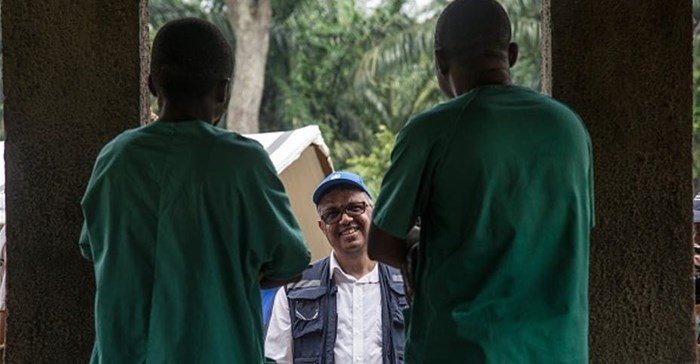
Top stories



LifestyleWhen to stop Googling and call the vet: Expert advice on pet allergies from dotsure.co.za
dotsure.co.za 2 days

AutomotiveHilux Custom Builds offers purpose-built solutions for your business
Toyota South Africa Motors 2 days

The last patient being treated for Ebola in the DRC has been discharged. What does this mean for the outbreak?
The first thing is that it’s evidence of all the work that’s been done by those in the field as well as remotely. This has ranged from tracing patients to raising funds, engaging the communities and testing samples. And it shows that collaboration and coordination are the only ways to handle a complex problem such as the Ebola outbreak.
For the DRC it means that we can now count down the 42 days (two incubation phases of the virus) to declare the country Ebola-free. During that time community engagement and contact tracing will continue to ensure no case is left behind. Treatment centres will remain open but will slowly decrease their staffing based on the evolution of the outbreak.
Teams will be on standby to administer vaccinations if need be. This is because the rVSV vaccine is only administered to people who are in contact with someone who has been diagnosed. There’s still an ongoing study involving the JnJ vaccine. This will carry on until the participants have completed the protocol, including the second dose of vaccine.
In my opinion, the turning point was the change in leadership to manage the outbreak response. After the elections in 2018 there was a change of government with President Félix Tshisekedi at the helm. In July 2019 the president appointed Professor Jean-Jacques Muyembe as the chairman of the response, leading to the resignation of the Minister of Health, Dr Oly Ilunga Kalenga.
These changes signalled a new, more inclusive approach to managing the crisis. As a result communities became more engaged and involved in the response. People from the affected areas became more engaged in managing a disease that was affecting them.
To be honest, we don’t yet know what the secret ingredient was. But by the time we declare the country Ebola-free we hope Professor Muyembe will tell us more about it. We imagine that his long experience with the disease and its management has paid a significant role in coordinating all those who were involved in the response. Not an easy task at all, I can tell you.
On top of this, partners such as Doctors Without Borders, Alima and others managed to play the roles allocated to them by the coordination team.
A major development was the WHO’s decision in July 2019 to declare the outbreak a Public Health Emergency of International Concern. I must stress this wasn’t the silver bullet. The outbreak of a deadly disease within a conflict zone – and then in a major city – can’t be solved with a technical solution, such as more funding. But the decision gave the DRC’s Ministry of Health more flexibility to ensure response teams reached even the most remote areas. The decision had a critical effect on the response. It provided a second breath to address the new phase of the outbreak, paving the way to the point we’ve arrived at now.
But we still have to wait for the 42 days and remain vigilant before we can celebrate.
The key lesson from breakthrough to come out of the ending Ebola outbreak is that we don’t solve a complex problem using technical solutions. Implementing an Ebola response requires political and community engagement - globally, at the highest level of the country, and locally.
The ability to listen to all partners, to negotiate based on interest, the capacity to advocate and finally decision-making power all contributed to stopping the outbreak in DRC.
Everything starts and ends with leadership.
Beyond stopping the outbreak it is important to note that Ebola is now a preventable and curable disease. We now have a vaccine (rVSV) that’s proven efficient in a large outbreak. Another is being assessed that involves the drugs Mab 114 and Regeneron.
The development of drugs and vaccines is further evidence of the critical impact that research can have on improving health while saving lives.
This article is republished from The Conversation under a Creative Commons license. Read the original article.![]()

The Conversation Africa is an independent source of news and views from the academic and research community. Its aim is to promote better understanding of current affairs and complex issues, and allow for a better quality of public discourse and conversation.
Go to: https://theconversation.com/africa